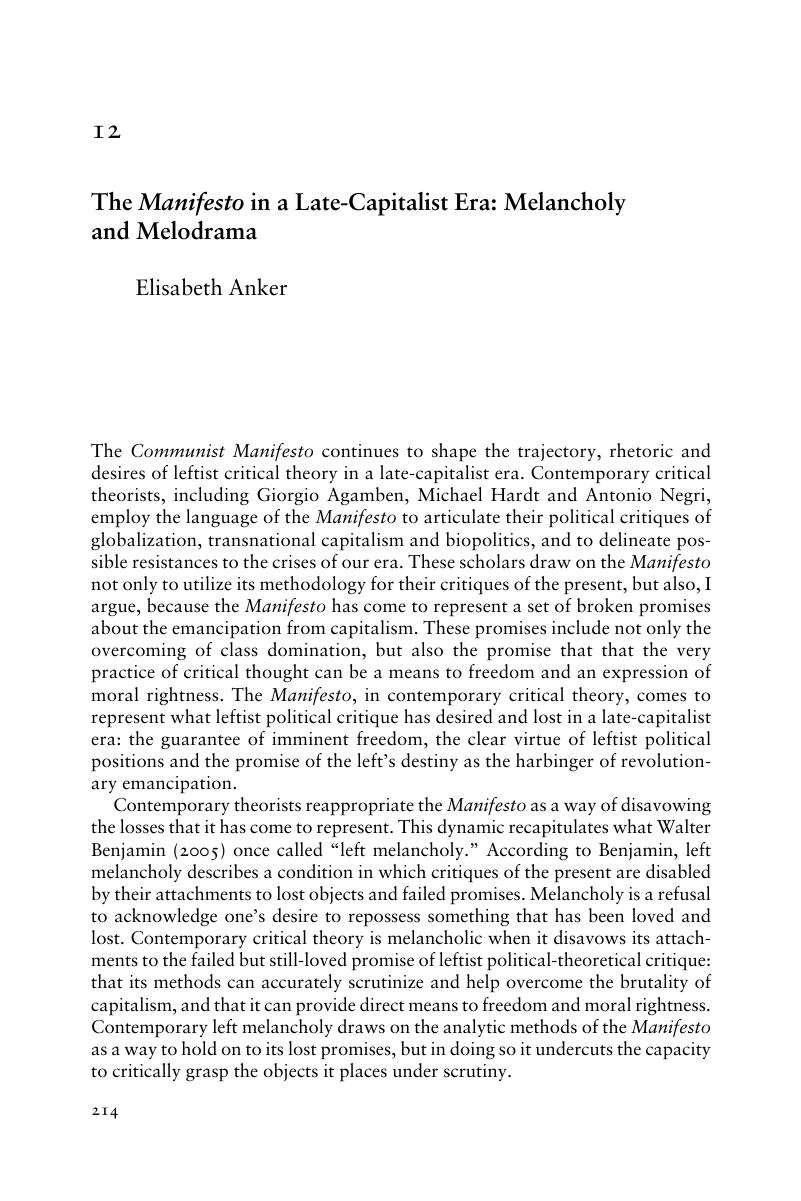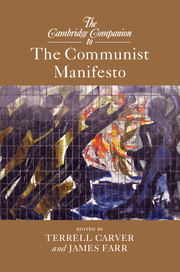Book contents
- The Cambridge Companion toThe Communist Manifesto
- Cambridge Companions to Philosophy
- The Cambridge Companion toThe Communist Manifesto
- Copyright page
- Contents
- Figures
- Notes on the Editors and Contributors
- Book part
- Glossary
- Editors’ Introduction
- Part I Political and Biographical Context
- Part II Political Reception
- Part III Intellectual Legacy
- 9 TheManifestoin Political Theory: Anglophone Translations and Liberal Receptions
- 10 The Specter of theManifestoStalks Neoliberal Globalization: Reconfiguring Marxist Discourse(s) in the 1990s
- 11 Decolonizing theManifesto: Communism and the Slave Analogy
- 12 TheManifestoin a Late-Capitalist Era: Melancholy and Melodrama
- Part IV The Text in English Translation
- Notes
- Index
- References
12 - TheManifestoin a Late-Capitalist Era: Melancholy and Melodrama
from Part III - Intellectual Legacy
Published online by Cambridge University Press: 05 September 2015
- The Cambridge Companion toThe Communist Manifesto
- Cambridge Companions to Philosophy
- The Cambridge Companion toThe Communist Manifesto
- Copyright page
- Contents
- Figures
- Notes on the Editors and Contributors
- Book part
- Glossary
- Editors’ Introduction
- Part I Political and Biographical Context
- Part II Political Reception
- Part III Intellectual Legacy
- 9 TheManifestoin Political Theory: Anglophone Translations and Liberal Receptions
- 10 The Specter of theManifestoStalks Neoliberal Globalization: Reconfiguring Marxist Discourse(s) in the 1990s
- 11 Decolonizing theManifesto: Communism and the Slave Analogy
- 12 TheManifestoin a Late-Capitalist Era: Melancholy and Melodrama
- Part IV The Text in English Translation
- Notes
- Index
- References
Summary

- Type
- Chapter
- Information
- The Cambridge Companion to The Communist Manifesto , pp. 214 - 234Publisher: Cambridge University PressPrint publication year: 2015



